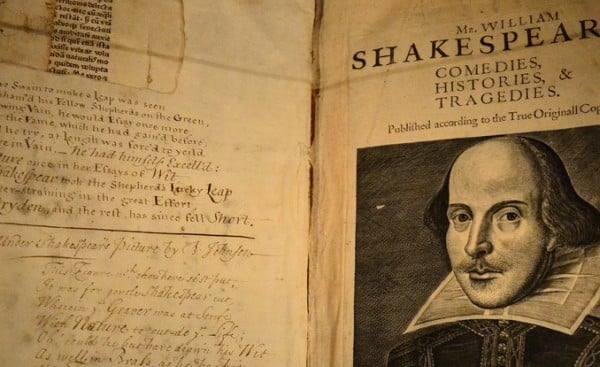Kurzel’s Macbeth: ‘The play haunts the film like Banquo’s ghost… it is a flimsy, see-through, paler version of itself.’
October 12, 2015

Photo credit: Ben Sutherland
It is a risky strategy to depart wildly from audience expectation and offer something completely different to what has gone before, so I have great admiration for Justin Kurzel’s bold attempt to reinvent the Scottish play. His direction is at times poetic and visionary, combining stunning cinematography with a heavy re-edit of Shakespeare’s text. Yet, while the attempt is valiant there is a growing sense throughout that this is a Macbeth that doesn’t want to be a Macbeth.
The screenwriters have hacked the text to the marrow. Things that happen offstage in the original are thrust into the centre at the cost of much of the onstage action (the MacDuffs are particularly short changed by the script). Indeed there is very little dialogue in the film, even when characters speak to each other it seems only to be a way of soliloquising with someone else present. On top of this, dialogue is often recast as soliloquy. This is a curious approach given that soliloquy is notoriously hard to translate from stage to screen without seeming hammy or false. True, Lady Macbeth’s “Out, damned spot…” is delivered in a delirium to no-one in particular, but the other people on stage/screen give it context. Here, poor Marion Cotillard (a great actress) is made to deliver it down camera with weepy resignation rather than as feverish deathbed confession.
The focus on the interiority of the characters does provide an interesting psychological reading of the text. Macbeth is a war weary tribal warrior, who takes his chance at the big time, but can’t escape the horror of what he has done. The film takes the liberty to suggest that his madness is caused just as much by the death witnessed on the battlefield as the regicide committed by his own hands, as ghosts of fallen comrades return. In particular, a young boy who stands proxy for Macbeth’s own dead son.
Yet, with no-one talking to anyone, most of the script missing and no connection between any of the characters (most damagingly between Cotillard’s Lady Macbeth and Fassbender in the titular role), following the action can become tiresome and irritatingly slow. The opening battle sequence, while beautifully shot to show the every fleck of spittle and blood in slow-motion, is overly long and self-indulgent. Likewise, the hellish furnace created for the final showdown between Macduff and Macbeth is marred slightly by being overegged. Breathtaking as the final shots are, they are meaningless. There is a real problem of style over substance in the film.
Taken on their own, the individual set pieces of Kurzel’s Macbeth show great technical skill and are among the finest cinema being made now. However, the ideas never fully coalesce into a coherent whole. Fassbender’s mumbling, grouchy Macbeth is not charismatic enough to carry us through. Cotillard’s Lady Macbeth seems to have been included as an afterthought. Usually the driving force of the play, it is telling that she dies more of an aside. No illness. Dead. Done.
All of this suggests that this would be a great film if it wasn’t Macbeth. In trying to fashion a new Macbeth, Kurzel gets tangled in it while trying to go somewhere else. Macbeth, the play, haunts the film like Banquo’s ghost. Like a spectre it is a flimsy, see-through, paler version of itself. Kurzel is clearly a talented and visionary film director, I just wish he’d slipped the shackles of the source material and made an original movie on the same themes.
You can follow Gavin Hudson on twitter at @hudson_writes.
Filed under: Theatre & Dance

Comments